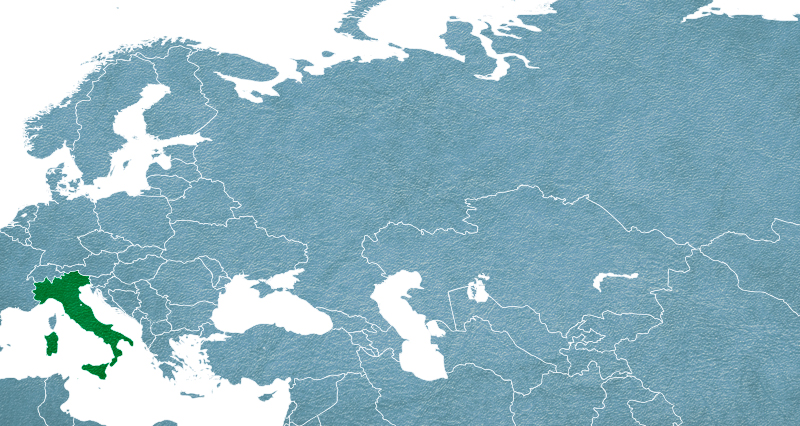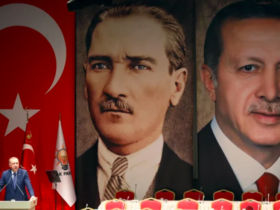This coming 25th of September, Italians will be called to the polls. The government led by Mario Draghi collapsed when the former President of the European Central Bank himself decided to go to President Mattarella to present his ‘irrevocable resignation’, after realising that the majority supporting the government he led, defined as one of national unity, no longer existed. Thus ended the path of Draghi, first courted, then supported, and finally stopped at the Quirinal race (for the post of President of the Republic) because he was considered indispensable in Palazzo Chigi as Prime Minister.
Officially, the crisis began on 14 July when the Five Star Movement (M5S) did not give the government a vote of confidence on a decree law (the so-called Dl Aiuti). Draghi at that point went to the Quirinale and tendered his resignation, which was later rejected by Mattarella, with the request to go to Parliament in order to get a vote of confidence on 20th July. The Prime Minister reiterated several times that he would not have led a government without the M5S. From that moment on, seeking for contacts and frantic negotiations has begun to avoid a government crisis.
Already the 6th of July, the Five Star Movement had presented nine demands, programmatic points to be realised in order to remain part of the government.
On 29 June, a photograph that immortalised Mario Draghi on the phone while he was sitting alone, away from the other leaders, at the Prado Museum in Madrid, become the subject of memes on social networks. It was a symbol of the impending crisis. The Italian Prime Minister was in Spain for the NATO summit and had been invited to the museum rooms for a Euro-Atlantic dinner among all heads of State. However, after the event, Draghi had to leave early for Rome. Although officially they tried to defuse it, there was already a crisis in the air in the government. The official motivation was the upcoming meeting of the Council of Ministers to discuss the expensive bills and the budget adjustment. However, it was clear that this had to do with tensions in the government. Before leaving, the Prime Minister had tried to reassure everyone: ‘The government is not at risk’. The day before, the leader of the 5-Star Movement, Giuseppe Conte, had been received at the Quirinale, where he had an hour-long conversation with President of the Republic Sergio Mattarella.
To try to save Mario Draghi, Foreign Minister Luigi Di Maio did not hesitate to split the 5 Star Movement, causing it to lose 60 MPs and a relative majority in Parliament. However, the desperate attempt by the opportunist Di Maio had no effect on the future of the Draghi government.
Ultra-Atlantic, warmongering, anti-people and anti-national government of Draghi
With Draghi’s downfall, the cries of pain were immediately heard from liberal and liberalist parties such as the Democratic Party and the mainstream press. They were all united in the demand that the so-called ‘Draghi Agenda’ be pursued resolutely in the future. With an euphemism to sweeten and hide policies of savage neoliberalism, warmongering of blind subservience to the bellicism of the USA and NATO, anti-grassroots, against the national interests of Rome and it was aimed at the abolition of any glimmer of residual sovereignty. Also with an unfailing reference to Europeanism, which it has now become nothing more than a façade… In fact, Draghi’s Italy, with its blind servility to the United States, has contributed to the current collapse of the Europe on the brink of economic, political, and social precipice, driven by the will of the political elites who decided to follow Washington’s dictates and launch themselves against Russia. Just to mention one of the most striking examples; Russia is an indispensable energy supplier for virtually the whole of Europe.
The fall of the Draghi government, on the one hand, we can certainly say without fear of being overheard, is a good news for the working class and other social classes, such as small and medium-sized entrepreneurs, that have been penalised by government actions.
Draghi, who had been nicknamed ‘Super Mario’ because of his long career and seen as allegedly a financial problem-solver, has seen Italian borrowing costs rise during his 17 months of premiership, he acknowledged in a press conference about two months ago: “This proves that I am not a shield against all events. I am a human being and therefore things happen,’ he had told reporters.
When he says ‘things happen’, Draghi is either dead wrong, or is clumsily trying to cover up the bitter fruits of his own consciously implemented policies. The Draghi government, which took office in February 2021, immediately created a disaster. While defending multinationals and financial speculators, it has disrupted Italy’s social fabric with its obtuse and blundering pandemic policies escalated inequality and attacked workers. It has also uncritically adhered to the warmongering policies of NATO and the US aimed at striking Russia. Its adherence to the brutal neoliberalism and policies of war against Russia led to a situation where inflation is now skyrocketing, wages are falling sharply and poverty is dramatically rising. And with all of this, a long and complicated winter lies ahead. The continuous sending of arms and military means to the Kiev regime makes Italy a co-belligerent country in the eyes of Moscow and completes this dark page of Italian history.
At this point, a doubt almost arises. What if Draghi’s main task was precisely to detach Italy from Russia once and for all and become the main referent of Washington’s interests in Europe?
It’s not a weird hypothesis. Since taking office, Draghi has managed to reduce relations with Russia to a minimum. Just think of Russian tourism in Italy is practically reduced to zero, a small but significant example. It had never reached this point. Not even in the days of the Soviet Union, at the height of the Cold War, when Italy was a border territory between the socialist camp and the western bloc. Despite its location in the western bloc, the presence of US bases and military on its territory, and its membership of NATO, Italy has always maintained excellent relations, including trade relations with the Soviet Union and later with Russia. As early as 1924, the Kingdom of Italy officially recognised the Soviet Union at the behest of Benito Mussolini (interim Prime Minister and Foreign Minister). Italo Balbo, a leading fascist hierarch, after travelling to Athens, Istanbul and Varna, was welcomed with honours in Odessa, then part of the Ukrainian Soviet Socialist Republic. In 1933, Italy and the Soviet Union signed the Italo-Soviet pact of friendship and non-aggression. Also during the 20-year fascist period, Umberto Nobile built airships for the Soviet state, while Agnelli’s FIAT built the world’s largest ball bearing factory in Moscow.
In short, Draghi has gone as far as even the fascist regime had gone, touching the intolerable and unprecedented spot of Russophobia for Italy.
At the same time, Mario Draghi may have seemed the ideal politician for Washington as an ideal referent of US interests in Europe, in place of other leaders who were too hesitant (Scholz) or not completely knelt on Atlantic interests (Macron).
His replacement will not be a problem, since practically all the leaders of the main Italian parties were in hurry to proclaim their unwavering Atlantic faith.
What’s next?
As we have already seen, Italians will be called to the polls on 25th September.
According to the main political polls, the centre-right coalition is expected to prevail in the next elections, with Silvio Berlusconi, in the role of junior partner. The most voted party should be, again according to the polls, Fratelli d’Italia (Fdl) led by Giorgia Meloni, leader of the heir formation of the Movimento Sociale Italiano, which was reborn from ashes of the Partito Nazionale Fascista.
No shake-up or upheaval seems in sight. Giorgia Meloni was in a rush, just like the others, to proclaim her faith in the Atlantic, which seems a necessity to govern in Italy. Interviewed by Italy’s main TV news programme, Tg1, Giorgia Meloni confirmed that Fratelli d’Italia is a guarantee of Italy’s Atlanticist position. Regarding international alliances, Meloni said: “our ideas have always been very clear, especially since the beginning of the conflict in Ukraine”. “We amply demonstrated this when we made the government’s foreign policy, from the opposition of the Draghi government. In the end, Parliament had to approve the resolution proposed by FdI, which was much clearer. FdI is the party that most of all guarantees Italy’s Atlantic position”.
This concept was also reiterated in an interview with the US broadcaster Fox News. Meloni wanted to emphasise once again what Italy’s international role should be for her: “We are confident of our position that Italy must maintain to defend its national interest. FdI, the opposition, has also helped the Draghi government to do what it had to do, starting with the support for Ukraine. That conflict is the tip of the iceberg of a process that aims a revision of the world order. If the West loses, the winners will be Putin’s Russia and Xi’s China; and the Europeans are the ones who will pay the worst consequences in the West”.
Those who fantasize that Meloni, Salvini and Berlusconi will set Italy on the path of neutrality, as Erdogan has shrewdly done in Turkey, or that they will put them in a position where they categorically reject sanctions, as Orban did in Hungary, will probably be very disappointed.
Then we have the Partito Democratico and its left- and right-wing liberal remnants. This is probably the worst and most dangerous party for the Italian people and the country’s own national interests. The party is the true mouthpiece of those powers that really pull the strings of politics in Rome and have condemned Italy to its decline.
In recent years, despite it did not come out as a winner at the ballot box, in one way or another, with the various tussles, the Partito Democratico has always managed to enter government majority by strongly conditioning them.
The Movimento 5 Stelle, on the other hand, having squandered the consensus achieved in the last elections and weakened by splits and internal feuds, seems unable to repeat its electoral exploit, with the Italian people channeling all their discontent into this political formation. Now, the situation is not yet clear and fully defined, but the M5S, led by former Prime Minister Giuseppe Conte, could run alone.
Let’s analyse one last scenario. Perhaps hypothetical, perhaps improbable, but not to be excluded a priori: a scenario in which a clear winner does not emerge from the ballot box. Therefore, under the pretext of an emergency due to war and pandemics, an alliance would be formed between Fratelli d’Italia and the Partito Democratico, with Mario Draghi as the head of the government again or another quisling in charge of carrying out what is defined as the ‘Draghi Agenda’. An agenda that converts into unbridled neoliberalism and uncritical acceptance of the warmongering policies of the US and NATO. Some signs are already exist, but much will also depend on how delicate the socio-economic situation in Italy will be next autumn. The shadows of recession and even energy rationing are looming on the horizon.
The anti-establishment forces
There is an actor to be considered in this electoral round: the emergence of so-called anti-establishment forces. A partaker that aims to give representation to the examples of opposition in the European cage, to the pandemic policies, as well as to the wicked warmongering policies of the United States and NATO that have led Italy to take the side of the Kiev regime against all logic and national interest.
The Italia Sovrana e Popolare coalition is running to give voice to these demands. This alliance includes some political formations such as the Partito Comunista, Ancora Italia, Riconquistare l’Italia and others.
The coalition presents itself as the ‘only alternative to liberalist, warmongering and sanitary totalitarianism’.
The program is evenly open and places its proposals to get Italy out of NATO, the EU, the Euro and the WHO at the top. Moreover, it includes points such as immediately stopping “the sending of arms to the Ukrainian regime” and thus no more “sanctions on Russia” sayings, and then rebuilding diplomatic relations with Moscow that severely damaged, as we have seen, by the nefarious government of quisling Draghi.
Italia Sovrana e Popolare identifies a fundamental and unavoidable point to restore Italy’s sovereignty and stop the decline. Thus, it proposes to “put the season of Atlanticist unipolarism to archive in order to reach to a multipolar world founded on the solidarity and sovereignty of countries united in international brotherhood, that is, the opposite of globalism”.
Italy in the multipolar world
Russia’s intervention in Ukraine and the situation in Taiwan after Nancy Pelosi’s serious provocation, inevitably marks the definitive transition from the unipolar phase to the multipolar one where the United States can no longer dictate rules and impose its will on the entire world.
Russia is the country that has most resolutely and openly decided to challenge the unipolar hegemony of the US, which had crushed even the once great European civilisation under its iron heel. However, the US-dominated unipolar order has now reached its final stage. At the end of the Russian military operation in Ukraine, humanity may finally enter a new era characterised by multipolarity and the rise of Eurasian powers.
This is why Italy, crushed on the one hand by US military-political control and on the other by the economic blackmail of that neoliberal monster known as the European Union, has the inescapable need and necessity to break out of this cage and turn its gaze towards Eurasia.
The long-term strategic perspective for Italy now is to break away from the US-led unipolar order and embrace the emerging multipolar order based on mutually beneficial cooperation between Russian-Chinese-Eurasian sovereign states.
Otherwise, if Rome remains tied to the dying Western order, it will condemn itself to an irreversible decline.

















Leave a Reply